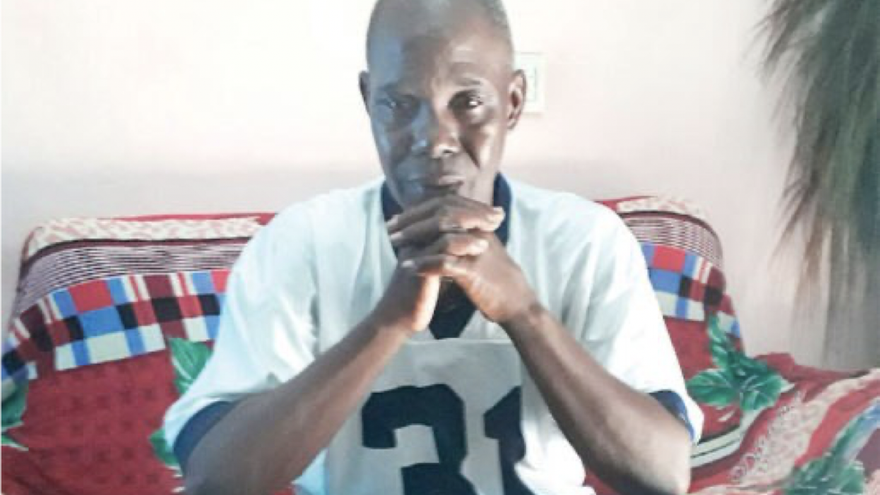
![]() 14ymedio, Havana, December 5, 2023 — “When I was at my peak they gave me everything. Now what?” The claim of Ariel Hernández Azcuy, a 53-year-old former boxer and two-time Olympic champion of Cuba, is nourished by his desperation. After his retirement, he says, the Cuban authorities stopped paying attention to him, and with the 7,200 pesos that they allocated to him as payment for a lifetime in the ring, he barely has enough to live.
14ymedio, Havana, December 5, 2023 — “When I was at my peak they gave me everything. Now what?” The claim of Ariel Hernández Azcuy, a 53-year-old former boxer and two-time Olympic champion of Cuba, is nourished by his desperation. After his retirement, he says, the Cuban authorities stopped paying attention to him, and with the 7,200 pesos that they allocated to him as payment for a lifetime in the ring, he barely has enough to live.
The interview with the athlete, published in the official newspaper Trabajadores, makes clear Hernández’s disappointment with the system. “Money is not enough. Everything is very expensive. We have to meet with someone from the Government to fix it. It’s not a matter of politics but of necessity. People from the Athletes’ Attention Commission have come here, but they don’t decide anything,” he complains.
In an attempt to find this institutional abandonment logical, Hernández lists his achievements: two Olympic golds — Barcelona, 1992 and Atlanta, 1996 — two youth world titles, the first of them at just 16 years old, and, in the World Boxing Championship, two golds (1993 and 1995) and one silver (1997).
He argues that “it’s time to remind the press.” The helplessness, however, is palpable, and old age in those conditions has led him on unexpected paths. “I am a custodian in a private business. Before I worked at Finca Holbein Quesada (training center for Olympic athletes) and then here in La Lisa,” he summarizes.
“I am disgusted with the Inder [National Institute of Sports, Physical Education and Recreation]. I’ve been trying to get them to change my apartment for years. They come and take note, but I’m still at the top of the building,” he explains, alluding to the physical problems that often make it difficult for him to climb the stairs. “They give houses to people with less results,” he adds, while alleging that the situation causes him “a lot of anger.”
We have to do more for the sport. Something is wrong. The athletes are leaving, and I don’t know why
“I am the best (in the category of) 165 pounds that has gone through Cuban boxing. The results say so,” he explains, while the journalist attributes the outburst of pride to Hernández’s dissatisfaction with his career. “I was able to be a three-time Olympic champion like [Teófilo] Stevenson,” another Cuban boxer who was the second athlete in the world to hold that title. Hernández doesn’t give up and launches another attack: “Even he believed it. Even in the 179-pound (competition), I would have triumphed as a professional! It’s a shame that I didn’t get that chance.”
What the State owes him for his years in the ring – where he experienced “tension and danger” – is not limited to his additions to the Island’s medals. Every year he dedicated to sport and the aftermath that boxing left in his life should also be rewarded, says the former athlete. “Boxing took away my youth. I went from being a child to an old man,” he explains. “When you’re a child, you take it as a game, but if you get involved, you know what it costs. You have to leave family, fun, women, everything.”
The pressure of the sport, he says, also brought him bad times. “Cutting off so much of your youth leads many to throwing themselves into drinking. When they retire, they feel helpless. It’s hard,” he says, based on his own experience. “I fell into the world of drinking. I recognize it. I entered a circle of parties and music. I didn’t go that far because I reconsidered,” he adds, although he admits that not everyone can recover.
“You get into that world. You lock yourself in your house, in your mind, you are alone (…). In addition, if they don’t give you what you deserve, it’s even worse. Nobody comes to you. Not even those you thought would. It’s like they used you,” he adds. When old age arrives, he continues, the situation doesn’t improve. “The past doesn’t matter. No one remembers,” says Hernández.
The former boxer doesn’t just talk about the disenchantment of his contemporaries. The situation with young athletes, marked by escapes and widespread discontent, has also reached his ears. “We have to do more for the sport. Something is wrong. The athletes are leaving, and I don’t know why,” he emphasizes.
He himself, he says, had the opportunity to leave and seek his fortune elsewhere. “They even offered me money, but I couldn’t fail that guy” he says, referring to Julio Mena, his “trainer, father, friend and brother.” The Revolution, however, did not thank him for the sacrifice in the same way. Sometimes, he reflects, “the blows of life hurt more than those in the ring.”
Translated by Regina Anavy
COLLABORATE WITH OUR WORK: The 14ymedio team is committed to practicing serious journalism that reflects Cuba’s reality in all its depth. Thank you for joining us on this long journey. We invite you to continue supporting us by becoming a member of 14ymedio now. Together we can continue transforming journalism in Cuba.
